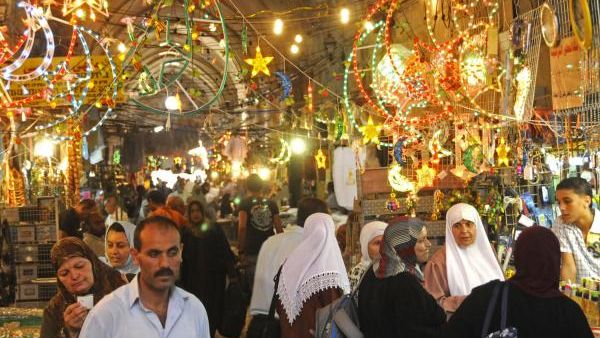The holy month of Ramadan has so many deliberations, dimensions and directions.
There are rituals of Ramadan.
There is the spirituality of Ramadan.
There is the consumerism of Ramadan.
There is Islamic finance during Ramadan. But, is there entrepreneurship during Ramadan?
One characteristic of Ramadan is that Muslims are more open to “Islamic” consumerism or financing opportunities that allow them to “closer connect” with the faith and fellow Muslims. May be its a way to self-reward for enduring the fast, especially during the hot summer (GCC) or long hours (Nordic countries).
It’s about getting up, getting out, getting about and going after the “Ramadan gift”.
Thus, there are Islamic finance products launched during the month, such as Ramadan shopping sales discount, and so on. Muslims want to see Muslim money circulated within the Muslim community, which is now possible because of the virtual world — social media, online commerce and mobile-phone connectivity.
For example, during Ramadan there is a global shopping phenomenon, both offline and increasing online. Muslims are making, selling and buying for family, friends and even foes. It’s a bazaar environment that brings back feelings of a “world’s fair”.
For non-Muslims, a possible way of understanding is comparing to Christmas. Ramadan consumerism is like the pre-Christmas sales atmosphere, as both bring gifts on Eid Al Fitr and Christmas Day, especially for children. But, is Ramadan also about entrepreneurship?
Yes.
First, 1001 Inventions, an exhibition showcasing the Enduring Legacy of Muslim Civilisation, was launched several years ago. From its website, it states: “The 1001 Inventions is a leading and award-winning international science and cultural heritage brand reaching over 150 million people around the world. 1001 Inventions uncovers a thousand years of scientific and cultural achievements from Muslim civilisation from the seventh century onwards, and how those contributions helped create the foundations of our modern world. Through its award-winning educational programmes, books, blockbuster exhibitions, live shows, films and learning products, 1001 Inventions showcases the contributions of inspirational men and women of different faiths and cultures in a civilisation that spread from Spain to China.”
Thus, at the height of the Muslim civilisation, Golden Age of Science and Discovery, it was a technology seeder, incubator, accelerator, a silicon valley on the silk road, as invention, innovation and entrepreneurship were flourishing.
There is a saying, “it tough to get to the top, its more difficult to stay on top”.
But, if you did it once, can you do it again?
I, like many, have less faith in Muslim governments, Muslim millionaires and billionaires or Muslim country based companies, but more in the 500 million Muslim youth.
Ramadan spark
Fast-forward today, the Ramadan spark is inspiring some to innovate and fill a gap (information) and meet the demand (for the information). The offerings are about education, information, commerce, communication and technology, however, as an equity culture does not exist in the Muslim world, the youth’s resourceful (bootstrapping) needs to be supported with idea or prototype financed risk capital.
For example, there is a Ramadan Entrepreneur Camp (Indonesia), Ramadan Camp (Saudi Arabia), Ramadan Excellence Camp (Pakistan) and so on. Thus, these enterprising individuals are following what they see around them, Islamic summer camps in the US or Islamic Montessori in Malaysia, and are offering another activity that is linked to another facet of Ramadan.
Muslim (youth) have gone high-tech, and, during Ramadan, apps related for prayer times, fast starting and fast breaking-time, etc are commonly launched. The more important question: do they garner traffic and traction?
There is an interesting app from Google, and recently reported on Engadget’s website: “The holy month of Ramadan began for Muslims this week, which includes fasting from all food and drink during the day. In order to keep you informed of the exact times for sunrise and sunset, Google launched the My Ramadan Companion. In addition to the time info, the site also collects recipes, local restaurant listings, YouTube content and other useful items in a card-based format for easy browsing. What’s more, the site pushes its findings to Google Now so the info you need is just a few swipes away on your phone. The digital assistant will suggest apps that can help you make the most of Ramadan — like reminding you to wake up for suhoor. The site is live so you can peruse as needed through the 30-day period that ends the evening of July 17th.”
Google probably asked the question, “where are we going to find an opportunity to tap, say, 500 million customers and where the rules of engagement are declared and defined (for the Muslim lifestyle marketplace)?”
Google is not picking or endorsing one religion over another. It is acknowledging a business opportunity with population of 500 million Muslim youth (and growing) under age of 30 and connected to the grid (Internet) via their mobile phones.
Furthermore, in bundling, picking and packing, other Google functionalities, both the customer journey and experience become memorable, hence, higher conversion rate, loyalty and ambassadorship. The biggest risk will be on execution, but Google’s metadata on regions/countries about user behaviour, be it via key word search terms or analytics, allows them to measure, monitor, matrix, mitigate, and manage the risk.
Google’s might, muscle and marketing will result in traction of the My Ramadan Companion app. Thus, the innovation is important and welcomed, but the outcome is Muslim continue to consume, be it halal food or technology, instead of producing their own for consumption.
Rushdi Siddiqui








